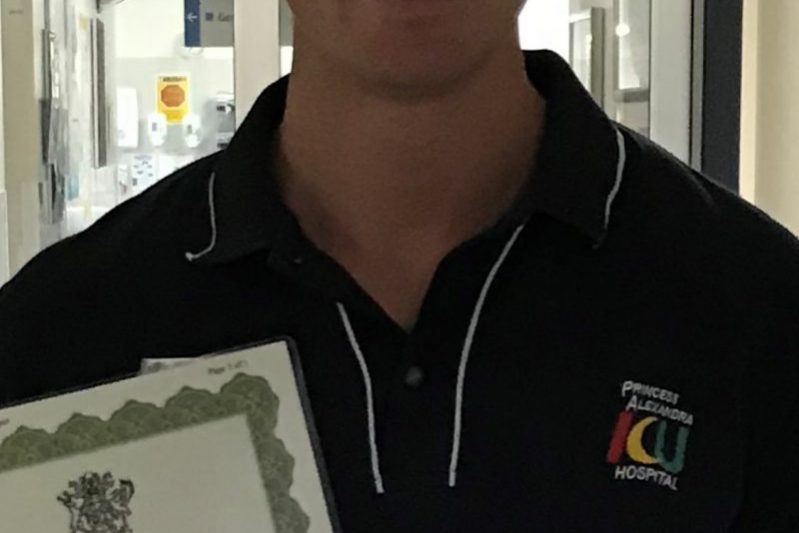By Ben Jenkins MACN, Nursing Officer in the Australian Army and host of The ACN Podcast
Why it will never feel like the ‘right time’
I remember the afternoon vividly. I finished a clinical shift within the intensive care unit (ICU) and was on the way home when I decided to pull my car over to the side of the road. I pulled out my phone, opened ‘Anchor’ and started recording…
My name is Benjamin Jenkins and I am a new Nursing Officer within the Australian Army. I received a defence sponsorship through university and completed two placement years within the ICU and Emergency Department (ED) at the Princess Alexandra Hospital in Brisbane. The afternoon described above is the moment I started to record my experiences of commencing as a new graduate nurse within the ICU.
At the time I was excited to have been selected to start my nursing career within one of Queensland’s major trauma centre ICU’s. I hadn’t had a student placement in ICU and had no idea what I was about to experience. Before starting I dug deep into literature surrounding mechanical ventilation, inotropes & vasopressors, anything I could get my hands on that might prepare me for what I was about to face.
As I started those first few weeks, I knew that this was a special opportunity that I wanted to share with others, however, I was unsure how. I considered writing a blog but didn’t believe I could get the emotional connection across like I wanted. I noticed a new app that had just been released called ‘Anchor’; a platform that allows you to record your voice straight from your device and instantly shares it across all major streaming platforms. It was this app that kick-started my podcast journey.
Over a period of two years, I went on to document my experiences within ICU, and the following year in ED; finishing with over 150 episodes. The podcast was called “New Grad Radio: Intensive Care & Emergency Nurse” and I talked about everything from my first night shifts, to caring for my first patient on a ventilator and all the way through to my final clinical assessment.
As much as I wanted to share the good things, I equally wanted to highlight the challenges and to normalise that it’s okay to struggle and have bad days. This was exceptionally challenging in the beginning; I had never felt more on display. At first, I kept the podcast from my friends as I was almost embarrassed by it, but as time went on, I learned to take ownership of it. I had a sense of creative freedom— this was my project. I started to tell people here and there and before long, nearly everyone knew!
Throughout that first year, I started to receive messages of absolute, unconditional support on the podcast’s Facebook page. Fellow graduates from all over the world were mentioning that they were feeling the exact same way. Student nurses commented that the information I had described helped them to prepare for their upcoming placement in ICU. NUM’s & clinical educators wrote to say how thankful they were that they could listen and learn from the insights of a graduate.
Whilst podcasting has led to a variety of opportunities, the message I hope to portray in this article is that there was never a time that I felt ready. Did I question myself? I sure did. Did I receive negative feedback and comments during that period of time? Yes. But it was those messages, from students, graduates and fellow nurses alike, that kept me pushing forward. There were times I would spend hours on one episode, questioning myself over and over; but what I have learned is to do my best, share the experience and move on. It doesn’t have to be perfect; it just has to be authentic.
Podcasting has provided a range of opportunities to enhance my clinical abilities. With each new experience, I critically reflect on how I felt and how it went. I’m more conscious of the words I use, and how I could explain concepts to a variety of different people. Most recently, I have established the official podcast for the Australian College of Nursing – ‘The ACN Podcast with Ben Jenkins MACN.’ This interview format enhances my ability to communicate and to connect with nurses from all over the world in order to learn from their experiences.
As clinicians, we’re usually not the first to highlight our work — our experiences have the potential to help others in ways we might not have ever considered. And all it takes is to start.





